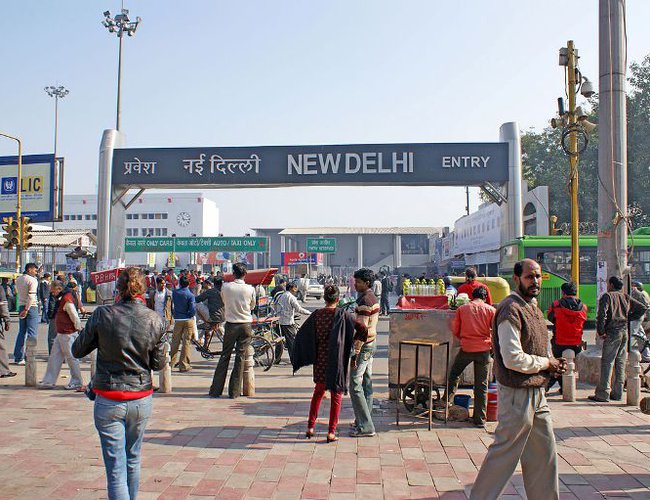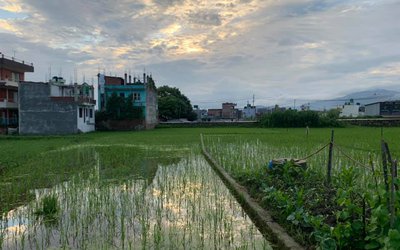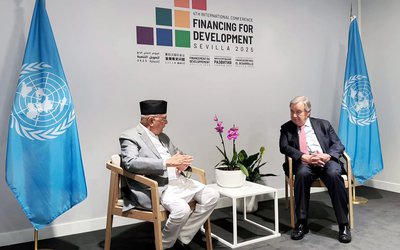
The slogan ‘Delhi door nahi’ has
always been enthusing me to be there.
A ride on ‘Delhi Tourism bus’ for what they call Delhi Darshan, was another dream that I nursed since my
childhood.And eventually when I stepped
my feet there, what I can recall now is the huge crowd on the street and the resultant traffic jam. Delhi still
used to have two faces: Old Delhi with lots of
historical monuments, narrow streets and
delicious traditional foods which all represented a civilization that prevailed there centuries ago. Then,
there was New Delhi, a more planned and
modern part with luxurious bungalows and apartments,
and vehicles always in a hurry to race despite jammed roads. Historically, Delhi has been a shelter for
various cultures that will attract job
seekers, students and others looking for more opportunities ever since it became the national capital.
I went to Delhi again 17 years later. This time, I saw a lot of
Afghanis in the airports and bus stops. My
curiosity and sort of attachment to
Afghanistan, its capital Kabul and its people started after I read Rabindranath Tagore’s ‘Kabuliwala’ when I
was in the school. The story is
about a vendor from Kabul who thought India was a place where he could work, earn money and send
it to his family back home. He
meets a little girl in whom he sees an image of his own small daughter. He starts frequenting the locality
to see her. Some unexpected turn of
events lands him the Kabuliwala to jail, and spends 18 years there. When he’s released, he goes
back to the same locality only to find
that the little girl has been married off and away from there. This makes him wonder about his own
daughter and her situation.
I was in Delhi again after a gap of 17 years. I
hired a cab. I asked Driver his name. He
was Shankar, and from his accent I could easily find out he was from Darjeeling. But he did not seem keen to carry
out further conversation after I told him I am
from Nepal. All that he told me was he
came to India as a teenager. He dropped me at my destination after a long and silent drive.
Part Two
On the second day, I went to a
family friend’s office a bit early. She asked me to wait as she was on the way. Her temporary
house maid, a pregnant lady with a child
on her arm opened the door. I heard her speaking
to her child in Nepali, and began conversing with me in Nepali, happily and openly. She felt more happy
to know that I was a Nepali. She told me
that she was there cooking for my family friend while her permanent helper was away. The permanent
help was a Nepali speaking Indian
from around Himachal who was currently away in his village for his daughter’s marriage. She then started
narrating her own life story.
She was an orphan from Siliguri. Looking
for opportunities, she reached Delhi as
teenager and started working as a house maid. She met her ‘would be’ husband, a Nepali from Okhaldunga,
few years later. Both of them were doing
labor based work. She had been pregnant once before her current child but got it aborted when she found out it was
a girl. She said it was her own independent
decision without any pressure from her
husband. She told me she wanted to save her daughter to go through the hardships a woman has to face in this world. She said her life was difficult. Having to live
in a small rented room surrounded by
luxury apartments and malls gave her a miserable
feeling. As she couldn’t afford to rent a proper apartment so she planned to buy a terrace for 7-10 Indian lakh
rupees, and pay in installment the little
amount that she fell short of. Unfortunately,
her plans to open a mo:mo got the first blow by her pregnancy, and second, by the move by the Modi
government against such food
stalls. But she was determined to make some money for which she planned to work during the first seven months of
her pregnancy facing all odds during that
stage. But she also realized that she would
not enough space for her two children to grow together. She was therefore planning to send her older daughter to
her husband’s village once she was five
to be looked after by grandparents. Strangely,
she had not met her husband’s family even once but was counting on their guardianship to her daughter.
Part three and last
Day three was different. I was flipping
through magazines in a beauty parlor
while I waited for my friend. Surprisingly, my friend’s assistant there asked me if I understood Nepali. Initial
exchange of pleasantries and demolition
of language barrier at once brought us nearer.
She began sharing about her life, and experiences revolving around it.
Delhi became her destination, a place of hope
and opportunities, when she eloped with
her boyfriend two months ago. Her family was opposed to their inter caste union. She was working as house maid for
an old couple. They were provided a free room on
the terrace. She was a Chettri, while her
husband was a Magar, eight years older to her. She was the youngest child in her family. Her father was a teacher
in a village school. She was sent for
higher education to Nepalgunj in western
Nepal. And, it was there that she met her would be husband twice through a mutual friend. They stayed connected
through Facebook and mobile phone.
Intimacy developed. They fell in love and eloped.
She was happy with the decision. She said
she had a very loving husband who
prepared lunch and Tiffin for her every day. Her house owner was very kind and supportive. He encouraged her
to begin work at a beauty parlor and was
even willing to have her enrolled in a college in future. Despite all this, she felt sad at times not
having someone around to speak in Nepali
and share her thoughts. Delhi had Nepali
speaking people in abundance, but connecting with them was not easy. Everyone had their story and circumstances that
brought them to Delhi but most of them
were ‘reserve’, and not willing to talk about it. In a sense, others were different from her.
She talked about her happy days spent with the
family before she was discarded. Last
year’s Dashai that she celebrated with her parents was naturally deeply engrained in her memories, cherishing
that such an occasion will return in
future. She dreamed of being in her house and neighborhood with over looking green hills, rivers,
flowers, family and friends but there
were no signs of her parents being ‘soft’ towards
her.Being in Delhi and far away from her home and family was still a cultural shock for her. Sometimes she felt
being watched. She’d choose routes that
were less crowded even if they were longer.
Happiness is a state of mind, and is
strengthened by the ability to cope with
adverse situation. Some may want to share it, and some may even conceal their identity as I noticed during
my three days stay in Delhi. But our past
and circumstances continues to chase us like a shadow does to our body. Challenge lies in
appreciating all that and moving on.

Abhilasha Sharma
Sharma can be reached at abhilasha.peace@gmail.com
- Obituary: Hari Sharan Nepali ‘Kaji’
- May 21, 2021
- Spring Festival In China
- Feb 04, 2019
- Woes of Bus Conductors
- Sep 03, 2017
- HOPE IN DESPAIR: Fighting and Surviving Cancer
- Aug 17, 2017















